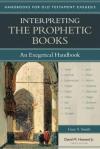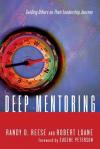This month’s reading began with the adventurous growth of global Christianity and ended with the struggle of an adventurous couple to live in the cutting edge while setting down roots in midwestern America. A couple of my books explored the follow of war–the illusion that World War I would be over before the leaves fell in autumn and the kind of frenzy of rhetoric and aroused passions that prevailed before the American Civil War. Back to back, I read a book for entering college students on academic faithfulness, and a guide to meaningful retirement. Mixed in this month was a book on mentoring, a collection of Charles Spurgeon sermons, and more! One of the more unusual was a gift from my wife–the story of a cattle rancher in the Great Plains that converted to buffalo ranching. I enjoyed it so much I immediately started reading the sequel.
 1. Kingdom Without Borders, Miriam Adeney. Adeney, a professor of global and urban ministries, chronicles the global spread of Christianity through stories of sacrificial and courageous Christians in the Majority World.
1. Kingdom Without Borders, Miriam Adeney. Adeney, a professor of global and urban ministries, chronicles the global spread of Christianity through stories of sacrificial and courageous Christians in the Majority World.
 2. Interpreting the Prophetic Books: An Exegetical Handbook, Gary V. Smith. This is a concise guide for those preaching from Old Testament prophetic texts covering issues of genre, themes, interpretation, preaching, and contemporary application.
2. Interpreting the Prophetic Books: An Exegetical Handbook, Gary V. Smith. This is a concise guide for those preaching from Old Testament prophetic texts covering issues of genre, themes, interpretation, preaching, and contemporary application.
 3. The Relational Soul, Richard Plass and James Cofield. Our relational capacity is essential to being human but often hindered by the false self that struggles with trust, but may be transformed through God’s gracious intervention, often through other people, that allows us to receive the gift of discovering our true self.
3. The Relational Soul, Richard Plass and James Cofield. Our relational capacity is essential to being human but often hindered by the false self that struggles with trust, but may be transformed through God’s gracious intervention, often through other people, that allows us to receive the gift of discovering our true self.
 4. Home Before the Leaves Fall, Ian Senior. This is a new account of Germany’s invasion of France at the beginning of World War I, describing how it almost succeeded and why it ultimately ended in stalemate.
4. Home Before the Leaves Fall, Ian Senior. This is a new account of Germany’s invasion of France at the beginning of World War I, describing how it almost succeeded and why it ultimately ended in stalemate.
 5. An All Around Ministry, Charles Haddon Spurgeon. A collection of messages given by Charles Haddon Spurgeon as President of the Preachers College during their annual conferences.
5. An All Around Ministry, Charles Haddon Spurgeon. A collection of messages given by Charles Haddon Spurgeon as President of the Preachers College during their annual conferences.
 6. Launch Your Encore, Hans Finzel & Rick Hicks. A guide to living purposefully from 60 onward, which many call “retirement” but the authors consider our “encore”.
6. Launch Your Encore, Hans Finzel & Rick Hicks. A guide to living purposefully from 60 onward, which many call “retirement” but the authors consider our “encore”.
 7. Learning for the Love of God, Donald Opitz and Derek Melleby. Written for undergraduate college students who are Christians, this book explores the idea of academic faithfulness as an integral part of the student’s discipleship and how this is cultivated.
7. Learning for the Love of God, Donald Opitz and Derek Melleby. Written for undergraduate college students who are Christians, this book explores the idea of academic faithfulness as an integral part of the student’s discipleship and how this is cultivated.
 8. Ecstatic Nation, Brenda Wineapple. Ecstatic Nation explores the period of 1848-1877, and the heightened feelings and frenzy of a country contending over slavery, going to war with itself, and then engaging in the conflicts of westward expansion and Reconstruction.
8. Ecstatic Nation, Brenda Wineapple. Ecstatic Nation explores the period of 1848-1877, and the heightened feelings and frenzy of a country contending over slavery, going to war with itself, and then engaging in the conflicts of westward expansion and Reconstruction.
 9.Deep Mentoring, Randy D. Reese and Robert Loane. Deep Mentoring proposes that the development of Christian leaders of integrity is a lifelong, God-driven process that mentors play a crucial part in through attentiveness and focus on the spiritual and character formation of rising leaders.
9.Deep Mentoring, Randy D. Reese and Robert Loane. Deep Mentoring proposes that the development of Christian leaders of integrity is a lifelong, God-driven process that mentors play a crucial part in through attentiveness and focus on the spiritual and character formation of rising leaders.
 10. Global Evangelicalism, Donald M. Lewis and Richard V. Pierard, eds. This collection surveys the global growth of evangelicalism from historical and theological perspectives, including case studies of growth in each region of the world, and special concerns of ecumenism and gender issues.
10. Global Evangelicalism, Donald M. Lewis and Richard V. Pierard, eds. This collection surveys the global growth of evangelicalism from historical and theological perspectives, including case studies of growth in each region of the world, and special concerns of ecumenism and gender issues.
 11. Buffalo for the Broken Heart, Dan O’Brien. Part memoir, part nature-writing, this book describes the story of a cattle rancher who hits bottom, and makes the transition to herding buffalo for economic and ecological reasons.
11. Buffalo for the Broken Heart, Dan O’Brien. Part memoir, part nature-writing, this book describes the story of a cattle rancher who hits bottom, and makes the transition to herding buffalo for economic and ecological reasons.
 12. This Ordinary Adventure, Christine Jeske and Adam Jeske. The Jeskes describe what happens when their quest to live a life of “amazing days” meets up with the realities of returning to suburban America, parenting, regular work–and routine.
12. This Ordinary Adventure, Christine Jeske and Adam Jeske. The Jeskes describe what happens when their quest to live a life of “amazing days” meets up with the realities of returning to suburban America, parenting, regular work–and routine.
Best Book of the Month: Dan O’Brien’s Buffalo for the Broken Heart stood out as a spare but compelling account of ranching in the Great Plains, weaving ecological insight of the symbiotic relationship of buffalo, land, and other creatures in the Great Plains, and the human community trying to eke its life out on this unforgiving land.
Best Quote(s) of the Month: I’ll give you two, the first being from O’Brien’s book:
“Was the increase in bird life on the ranch a partial result of a different, evolutionarily more compatible kind of grazing? Did the buffalo’s way of moving quickly from one part of the pasture to another affect the grass more positively than the wandering of domestic livestock? Was the entire matrix of the ranch’s ecosystem improved by the simple conversion back to large herbivores that had evolved to live here? In my heart I was coming to believe that the answer to all these questions was yes. I wanted to shout it to the skies, but I had learned long before that when profound questions are asked of the heart, the answers are best kept to yourself” (p. 168).
The second was from Spurgeon:
“We must cultivate a cogent as well as a clear style; we must be forceful. Some imagine this consists in speaking loudly, but I can assure them they are in error. Nonsense does not improve by being bellowed.”
Look for reviews in the coming days of a book on evangelical universalism (is this an oxymoron?), a historical fiction piece on the battle of Agincourt, the sequel to Buffalo for the Broken Heart. I’ll also be wading into some essays on the works of C.S. Lewis, and the Zaleskis’ The Inklings. With his passing, an Oliver Sacks book just found its way to the top of my TBR pile as well.
With cooler days approaching, I hope you’ll find some good books to curl up with along with a warm drink!
[Links in this post are to the full reviews in Bob on Books. In those reviews, you may find links to publishers websites.]